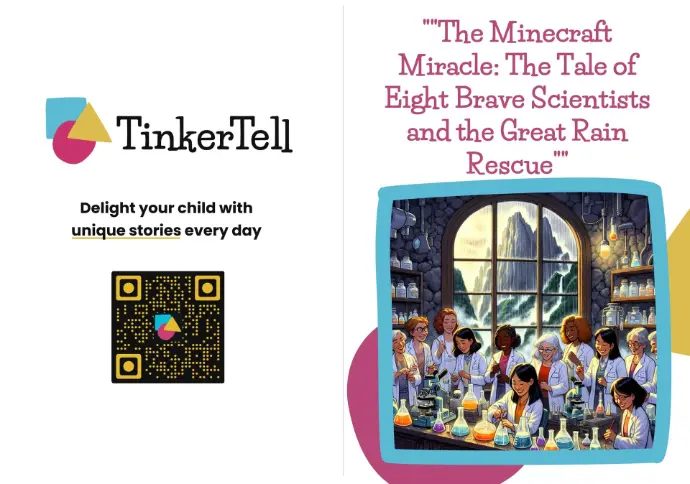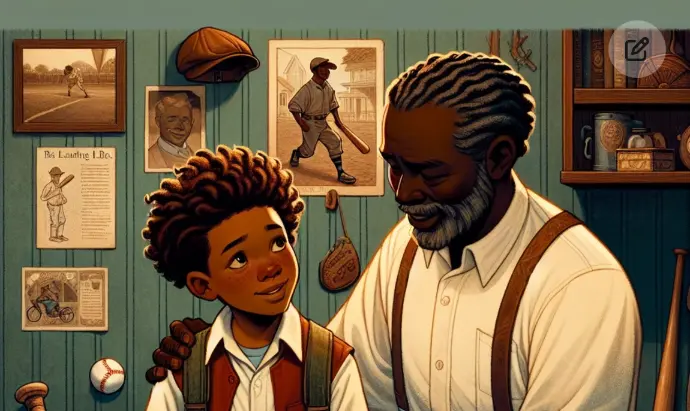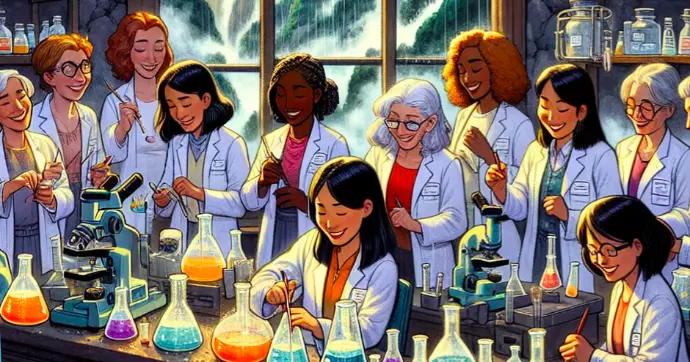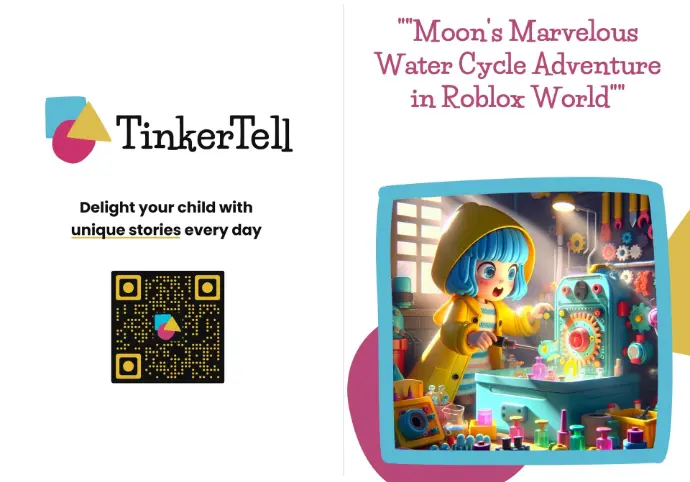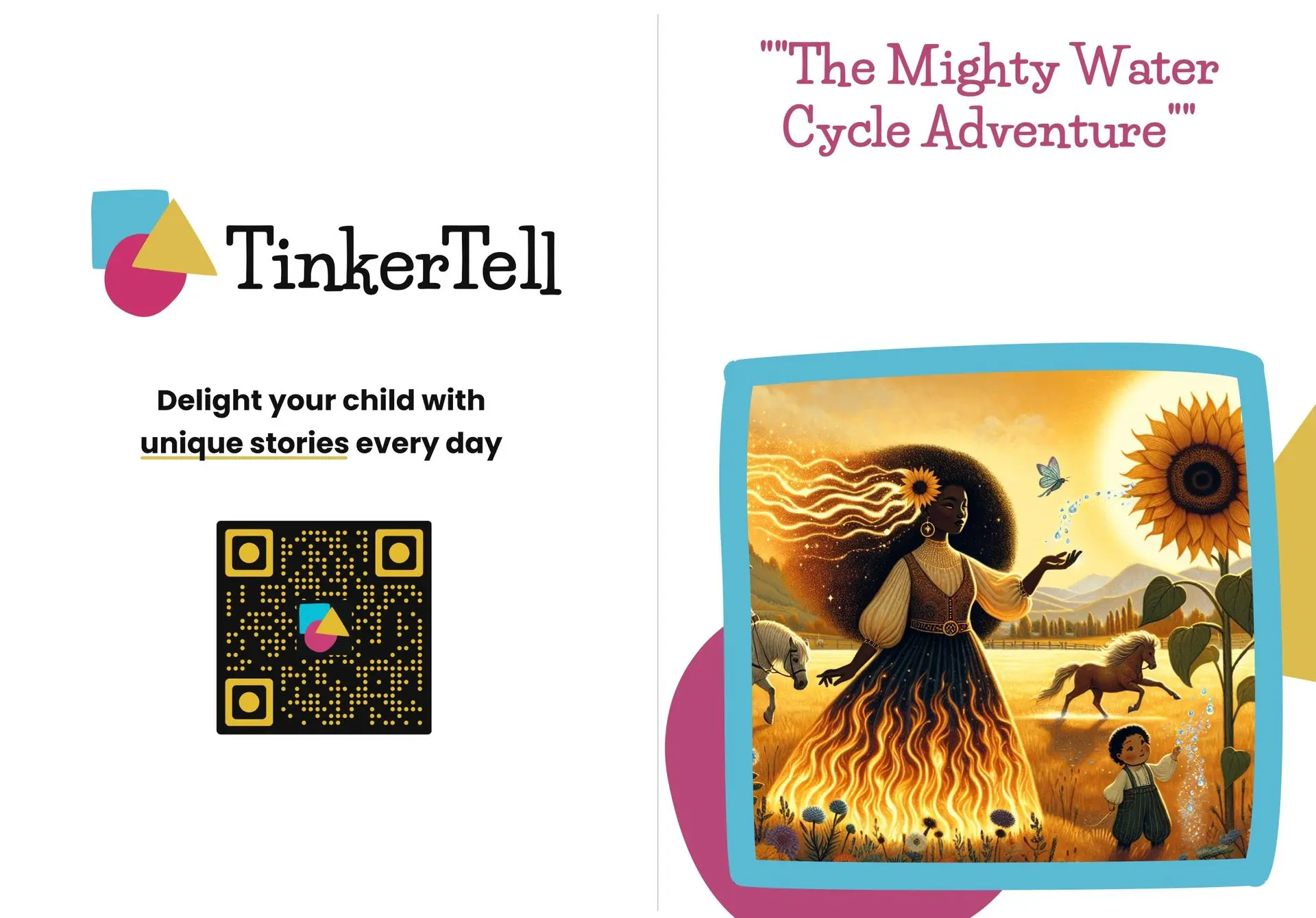When I agreed to take the co-founder and Chief Learning Officer role at TinkerTell, I was already enamored by the easy-to-use "grandparent-proof" personalized story creation app for children (you can read about the origin and philosophy of founders Ari Marsilio and Rob here, in part one and two of this series). This article, a Part III editorial, introduces our full-on dive into the education market that came with the launch of TinkerTell for Schools and our selection for the Future of Education Technology Conference (FETC) pitch competiton offered in January in Orlando, Florida.
The Science Behind Our Mission
I have a confession to make. I was the third co-founder pushing for a web-based school literacy product, because I wanted to use it myself. So, it was a selfish move, in a way.
Why? I’ve always been a little obsessed about differences in literacy rates, knowing that some children get more exposure to language early on, and how that influences their early reading trajectory. As researchers show, both the quantity and quality of linguistic interactions matter tremendously (Rowe, 2012). Indeed, children exposed to rich language and storytelling experiences develop vocabularies up to 40% larger than peers with limited exposure (Hart & Risley, 2003). More recently, Logan and colleagues (2019) quantified this as the "million word gap" as by kindergarten, children who do not get their daily dose of story-time may hear 1.4 million fewer words than those who experience frequent story-time.
Of course, it goes without saying that reading aloud to children might not be the only significant influence on language and literacy. Children can grow up in many varied and rich circumstances, be surrounded by chatty parents who don’t read much but eagerly engage their children in enriching conversation. Suffice to say, however, reading time is an opportunity for tender, quite, one-on-one moments between caregiver and child, something developmental psychologists call “joint attention”. Morales et al. (2000) and Farrant and Zubrick (2012) identify joint attention as crucial to language development.
Also, reading stories aloud does create more than just a simple language exposure. With conversation we tend to use the same words, over and over again, we have habits in our speech. Yet, as Mesmer (2016) demonstrated, the lexical reservoirs of books children encounter shape their vocabulary acquisition. So there’s this aspect of curation, picking the topic, and subject matter that your child likes, that may engage them further. Enter TinkerTell and parents can become empowered storytellers, creating stories with their child at the center, about topics the child loves.
Our Leap of Faith to Expand from Consumer App to School Pilot
Spoiler alert: The big leap was to take the brilliant ease of use from TinkerTell's consumer app and make it available to schools, but develop the web-based product with a dashboard that provided everything that was relevant about instructional design, classroom management and (of course) all relevant research about language and literacy development.
While the FETC in January of 2025 provided an important launch platform for TinkerTell for Schools, the true validation came from our first comprehensive pilot at Stone Mill Elementary in DeKalb County, Georgia. There, STEM Teacher Sylvester Boston guided fourth-grade students in creating water cycle stories using our dashboard and lesson plans.
What has made this pilot particularly meaningful to TinkerTell was watching students engage deeply with non-fiction scientific concepts as well as narrative creation. Usually, in reading materials, it’s one or the other. Teachers have a choice of using fictional narrative or expository text. The opportunity TinkerTell for Schools offered in one lesson plan constituted a blend of both. The children didn't just consume information about the theme of the week “The Water Cycle” they also created story characters, set the scenes, acted as editors and art directors of illustrated narrative stories that leaned into factual information tied to Earth Day. Mr. Boston’s fourth graders rewrote and customized images to their liking, producing remarkable stories like "The Tale of Eight Brave Scientists and the Great Rain Rescue", "The Moon's Marvelous Water Cycle Adventure" and "The Mighty Water Cycle Adventure."
These stories and the experience embodied precisely what research by Sénéchal and LeFevre (2002) highlighted, that when children actively engage with text through guided literacy activities over time, their reading skills develop more robustly. We have yet to scientifically measure the outcomes of these exercises but observers detailed how the Stone Mill Elementary School students were engaging with the water cycle in a proactive and deliberate manner that likely added to the development of their vocabulary, comprehension, and creative thinking skills simultaneously.
Addressing the Implementation Challenge
One of the most significant barriers to effective literacy interventions in schools is implementation fidelity (Weitzman et al., 2004). Teachers are tasked with a million responsibilities and also face numerous constraints. Classrooms can be big (often between 25 to 30 children), and kids arrive with differing needs. There’s pressure to meet scope and sequence expectations, and the state standards demand that every lesson be linked to specific learning goals. Sometimes, teachers are tasked with creating a potential rise in a standardized test scores by the semester's end. In other words, teachers are under pressure to provide consistent, high-quality literacy experiences for every child in a customized, but sequential way that engages every single student.
TinkerTell for Schools addresses a majority of these pain points by making personalized learning easily scalable. Our dashboard allows teachers to assign differentiated activities based on each student's needs while offering custom lesson plans that are always aligned with specific and well documented state standards. For example, students can be tasked with differing but aligned activities that move them forward. Some may be focused on better recognizing story elements, some on vocabulary enrichment, whilst others on narrative structure, and yet all will be engaging with the same core scientific content about the day’s theme, be it “The Water Cycle”, or “The World’s Active Volcanos”.
Our approach is supported by research showing that effective literacy interventions must be adaptable to overcome implementation barriers (Justice et al., 2015). TinkerTell for Schools helps teachers deliver the kind of personalized literacy experiences that researchers talk about as most effective. We can achieve this because our human-centered design is both structured yet built with the inevitable need for flexibility, iteration, and the sequence of anticipated learning outcomes.
Centering the Human Connection Further
While TinkerTell’s fine-tuned AI model is sophisticated, we never lose sight of the human element in literacy development. As Zimmerman and colleagues (2009) demonstrated, the conversations that happen around text are as important as the text itself. At Stone Mill Elementary School, we observed Mr. Boston used TinkerTell stories as springboards for rich discussions, collaborative problem-solving, and creative expression. Indeed, the packs of lesson plans available to classrooms encourage discussion and include teacher guides for working online or offline using our print function. All this is designed so that children following any pedagogy can benefit from working with a TinkerTell story, even when it requires handwritten edits and complete handwritten story re-writes.
Because project-based group work is often required, our technology is designed to facilitate what Morales et al. (2000) and Farrant and Zubrick (2012) identify as joint attention to meaningful content. Students do not need to work in isolation. Instead they may share ideas, respond to each other's stories, build vocabulary through authentic communication and even engage in theatrical script-writing on stories that genuinely interested them.
Equity Through Innovation
As we expand to more schools, our mission remains grounded in addressing what Rowe and Zuckerman (2016) call the "word gap redux" and importantly recognizing that closing vocabulary gaps requires attention to both developmental sequence and quality of language experiences. Literacy improvement does not happen in one space. It can’t be focused on just new word learning for example. Rather, it must touch on the context, and words must be presented in rich and interesting materials. This is why we have spent so much energy designing ways in which stories and narratives can be used. We believe the research shows that the narrative format, editing, re-telling and writing of stories disproportionally contributes to a child’s cognitive development, language growth, and literacy fluency.
TinkerTell for Schools is a tool that answers a cry for help that persistently presents itself in the school setting. How do educators customize materials for all students without slowing things down too much? How do educators offer carefully differentiated teaching without depriving some children of the opportunity to self-manage their (advanced) love of reading or writing? By combining AI-powered personalization with teacher-guided instruction, we're creating literacy experiences that adapt to each child's needs while maintaining the quality interactions research shows are essential.
The stories from Stone Mill Elementary School aren't just demonstrations of technological capability, they are evidence that we are on the right track. It is the right tools and support, in the right moment, for all children to become engaged, confident storytellers, readers, and writers. Whether creating adventures that references the children’s favorite influencers, or exploring scientific concepts through narrative re-telling, these students are building their vocabulary and comprehension skills that will serve them throughout their educational journeys.
Dr. Katherine M. Schlatter CLO of TinkerTell
...has her Doctor of Education from TC Columbia University. She also studied human development, language, and psychology under the tutelage of Profs. Paul L. Harris, Meredith L Rowe, Catherine E. Snow and Samuel Ronfard at Harvard University

Want to know more about TinkerTell for Schools? Get in touch with us! by emailing ari@tinkertell.app or using the form below

